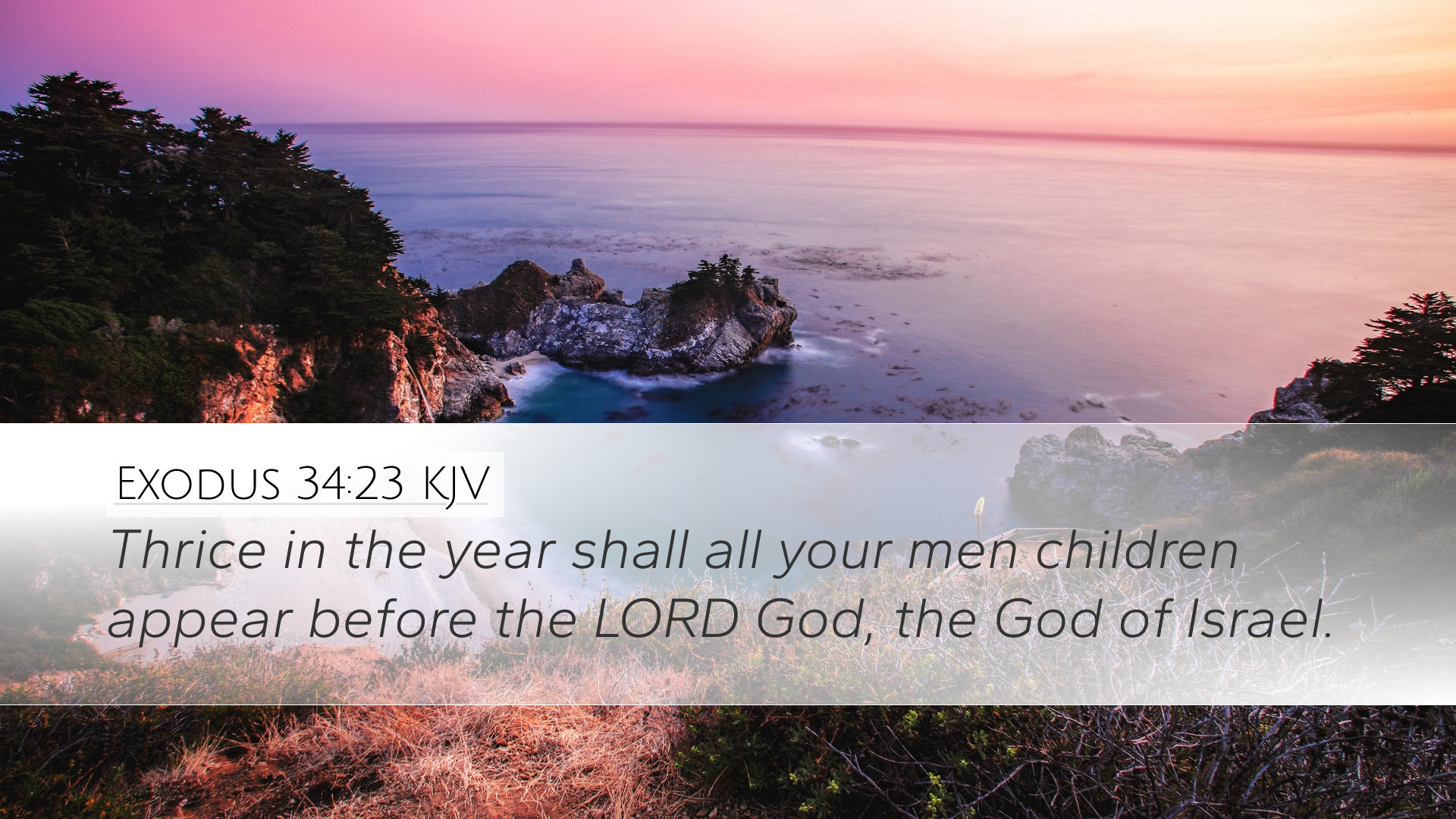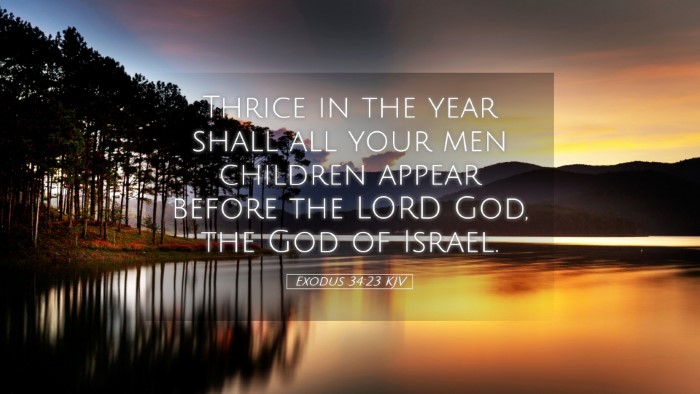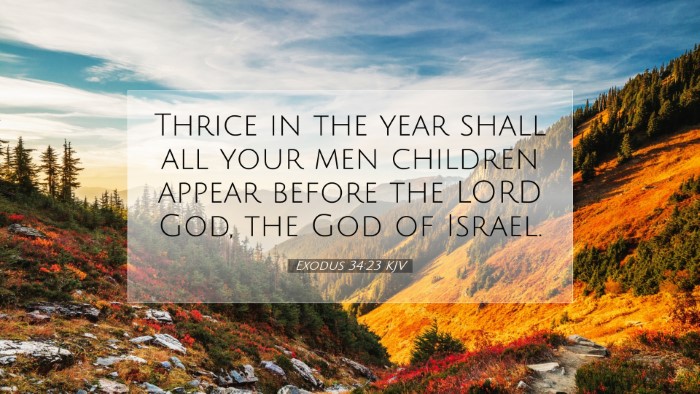Commentary on Exodus 34:23
Verse Summary: Exodus 34:23 reads: "Thrice in the year shall all your men-children appear before the Lord God, the God of Israel." This verse encapsulates a significant mandate regarding the observance of sacred festivals and highlights God's expectations from His people.
Historical Context
This directive occurs in the context of the renewed covenant with Israel after sinning with the golden calf. It emphasizes the importance of collective worship and obedience to the laws given to Moses. Theologically, the continued connection between these festivals and God's redemptive history is vital, as these feasts were reflective of God's overarching plan for His people.
Theological Insights
Several public domain commentators provide key insights into the theological implications of this verse:
-
Matthew Henry:
Henry emphasizes the importance of the presence of God during the festivals. He notes that the men of Israel were required to present themselves before God, which indicates a summons to worship and a moment of accountability. This gathering serves to remind them of their responsibility as followers, living under God's covenant.
-
Albert Barnes:
Barnes elaborates on the significance of "thrice in the year," accounting for the three major pilgrimage festivals: Passover, Pentecost, and Tabernacles. He underscores that these festivals served not only as reminders of God's providence and deliverance but also as opportunities for communal identity and memory. The men's presence was essential for the stability of the Israelite community as they acknowledged God's sovereignty.
-
Adam Clarke:
Clarke gives attention to the cultural context, explaining that the festivals also acted as a unifying force for the tribes of Israel. By gathering three times a year, individual tribes strengthened their collective identity and commitment to God. Clarke further notes that the instruction underlies the importance of dedicated times of worship and celebration, fostering both spiritual and social bonds among God’s people.
Meaning of "Men-Children"
The term "men-children" indicates that these gatherings were primarily for adult males, who were seen as the spiritual leaders of their families. This role underscores the expectation that men were responsible for leading their households in worship and teaching their families about God’s laws. Efficiently, their participation was crucial for instilling the values and traditions in the subsequent generations.
Practical Applications
For contemporary believers, the principle behind this verse encourages regular engagement in worship and community gatherings. Some applications include:
- The Importance of Worship: Regular attendance at congregational worship fosters spiritual growth and communal support.
- Leadership in Worship: Spiritual leaders today are called to guide their households in faith, reflecting the responsibility laid upon the men of Israel.
- Commemoration of God’s Grace: Like the festivals that celebrated historical acts of salvation, Christians are encouraged to remember and recount God's grace in their lives.
- Building Community: Gathering together fosters unity and strength among believers, echoing the communal aspect of the Israelite festivals.
Conclusion
Exodus 34:23 holds enduring significance, as it directs the people of Israel to gather thrice a year, fostering a relationship with God and among themselves. The call to worship underscores the communal aspects of faith, which theologians and scholars alike recognize as vital to spiritual life. Through historical understanding and practical application, this verse encourages modern faith communities to remain connected to their heritage and to God.


